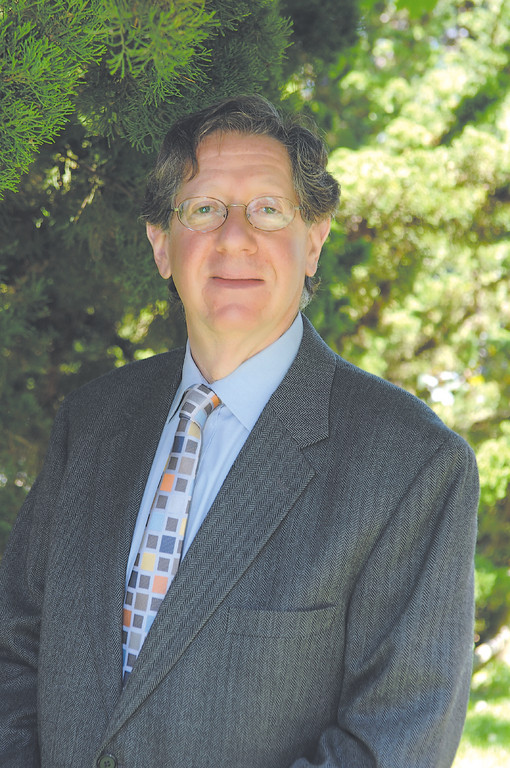The Kosher Bookworm Joseph on Joseph: The Rav’s take on the Tzaddik
The subject of the life’s journey of Joseph, Yosef Hatzaddik, is the subject of weekly Torah readings till the end of December, which includes the festival of Chanukah.
This week’s essay focuses on the work “Vision and Leadership: Reflections on Joseph and Moses” [Ktav Publishing House, 2013] by Rabbi Joseph B. Soloveitchik, edited by Rabbi Reuven Ziegler, Dr. David Shatz, and Dr. Joel Wolowelsky for the Toras HaRav Foundation.
This review deals with the Rav’s take on Joseph.
According to Rabbi Reuven Ziegler, the Rav identified with Joseph, not just because they both had the same name and because Joseph was misunderstood by his siblings. Rabbi Soloveitchik identified with Joseph mainly because he was a dreamer and Joseph demonstrated, throughout his life’s experience in Egypt, that one can remain a loyal Jew even while living in the most advanced society of that era. Further, both were to spend their life’s work interacting within their respective societies at the highest levels.
Much in this work points to the Rav’s highlighting Joseph’s activities as parallel to the ultimate destiny of the Jewish people.
In the Rav’s essay, “Joseph The Dreamer” he observes: “As Jews, we have a living memory which spans centuries and millennia. We also have an awareness of a common destiny. The past is real to us; the future is also real – as real as the past. Basically, this memory of the past, together with anticipation of the future, are two experiences of brothers. And since Jews are brothers, that is what unites us: the common past and the common future.”
This common bond, when joined with trust, has forged for Jews, throughout history, the binding force that assured for us that collective strength that has guaranteed our existence through the ages.
The relationship between Joseph and Pharaoh was predicated upon the wise advice that Joseph gave the monarch that led to the continued economic integrity of the Egyptian governance. Consider the following interpretation of Joseph’s words by the Rav:“However, there is a way to avoid the distress and disaster which will be caused by the seven cows, and that is the intelligent handling of human success. Of course, you can, if you decide to ignore my interpretation, enjoy the seven years of abundance with a careless attitude-not anticipating trouble and not preparing yourself for disaster. Pharaoh and the aristocracy would be provided with nourishment, but the crowd may be nonchalantly left to starve. If this is the way you are planning to meet the future, then you may expect the worst – destruction and revolution. However, if you decide to meet the famine intelligently and feed the people, if you accumulate lots of food for people to survive times of need and distress but without profiteering or speculation, then the damage which the seven cows inflict will be very limited. On the contrary, the onslaught of the satanic forces upon civilization will, instead of annihilating, strengthen the constructive elements in our civilization. Whether the hostile demon abiding in our midst will succeed in destroying Egypt depends upon our action.”
How contemporary does this all sound--for here we have a situation that parallels all the talk of a fiscal cliff in ancient garb as foreseen by Joseph and as so accurately interpreted by Rav Soloveitchik.
The Rav concludes this segment: “Pharaoh apparently understood Joseph. He said to his servants, ‘Is there another one like this, a man in whom the spirit of G-d dwells?’ He then puts Joseph’s plan into effect.”
In another essay entitled “Joseph the Ruler,” the Rav continues his observations concerning Pharaoh’s rule under the threat of potentially dire circumstances.
“Pharaoh had a great understanding of spirituality. We know that Joseph’s presence had an enormous impact upon him.”
Now read further on this from the Rav:
“Joseph humanized and sensitized him. He succeeded in making Egypt the provider of food for the Mideast without discriminating between Egyptians and foreigners. There was a humanitarian aspect to the distribution system introduced by Joseph. The peasants retained 80% of the harvest for themselves; only 20% was given to the treasury – a pretty decent agreement for antiquity!
Joseph convinced Pharaoh that justice and charity must prevail, that a civilized country cannot exist on technology alone. A moral system is indispensable.”
These lessons of the Rav reflect the inspiring teachings of a religiously inspired leader, skilled in the art of bringing the word and belief in G-d as the very essence of what our religion is truly all about.
This theological link by the Rav to the life’s work of Joseph is further commented upon by Rabbi Reuven Ziegler in his monumental work, “Majesty and Humility: The Thought of Rabbi Joseph B. Soloveitchik” [OU Press, Maimonides School, Urim Publications, 2013] wherein he states the following theologically based observation:
“Rabbi Soloveitchik saw himself in light of the biblical Joseph. The latter’s constant preoccupation was to safeguard the continuity of Abraham’s tradition when relocated into a different civilization. In the Rav’s reading, Canaan and Egypt are not just locations, but cultures – the simple and old vs. the sophisticated and new. In our day, the Rav felt, the tasks of perpetuating and applying the Torah within new environments would inevitably need to be pursued in both Israel and the Diaspora. He devoted his untiring efforts and creative energies to pursuing these tasks in the leading country of the West, America. At the same time, he involved himself and expended great concern in ensuring the Torah’s continuity in Israel and in shaping the character and future of the young state.”
Such are the eternal legacies of the two Josephs of our people.

 46.0°,
Light Drizzle
46.0°,
Light Drizzle 




